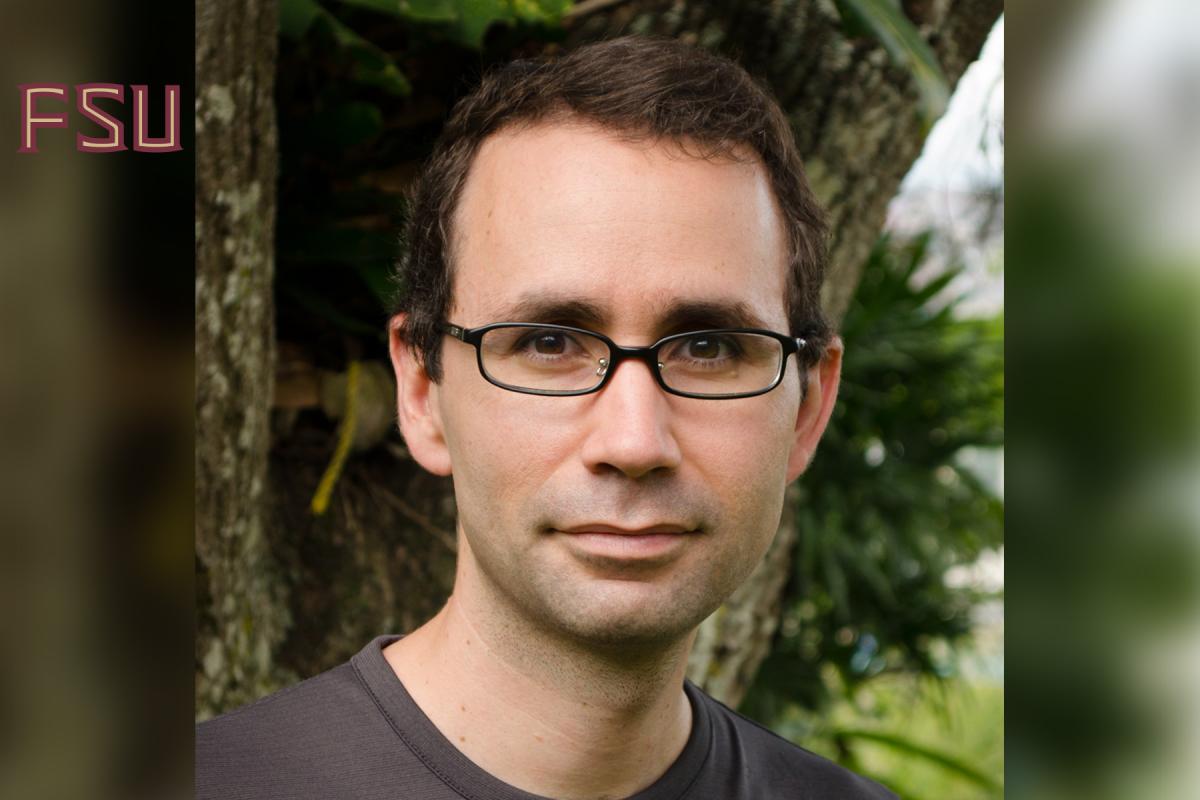FSU physicist elected American Physical Society Fellow

A Florida State University physicist has been designated a Fellow of the American Physical Society (APS) in honor of his cutting-edge contributions to the fundamental understanding of the universe.
Professor of Physics Fernando Febres Cordero was recognized by APS for his work in high-energy theoretical physics, which has helped increase the precision with which scientists can predict interactions among particles of matter. Febres Cordero’s work has implications for the study of a wide range of phenomena, from subatomic particles to black holes.
“The Fellow distinction is a great honor conferred by my peers at APS,” Febres Cordero said. “I also consider it a responsibility, as APS Fellows are expected to uphold the highest ethical standards while developing and promoting scientific research.”
The APS Fellowship Program, created in 1921, recognizes physicists who have contributed to scientific advances through original research, innovative applications, teaching and leadership. Each year, no more than one half of one percent of peer-nominated APS members are elected as Fellows. Febres Cordero is the 51st FSU researcher to earn this honor.
“Dr. Febres Cordero is one of the world’s leading guides on humanity’s journey to understand matter at its most fundamental level,” said Paul Cottle, chair of the Department of Physics. “APS’ recognition of his work demonstrates the importance of FSU’s contribution toward understanding the natural laws determining how matter behaves.”
As a high-energy theoretical physicist, Febres Cordero investigates how fundamental forces drive interactions among elementary particles. These include electrons and photons, or particles of light, as well as quarks, which make up protons and neutrons. Examining the behavior of these particles allows researchers to better understand the universe at its smallest level, paving the way for new discoveries.
“Humans always strive to keep exploring the universe,” Febres Cordero said. “Questions about the nature of fundamental interactions push this exploration forward. How was the universe born, and what can we expect of it in the far future? Our research aims to answer these questions.”
Febres Cordero was honored by his peers at APS for exceptional work in pioneering ideas for the calculation of scattering amplitudes and developing their application to both collider physics and gravity.
Scattering amplitudes carry out the information needed to analyze collision experiments like those taking place at the Large Hadron Collider (LHC), the world’s largest particle physics experiment. Febres Cordero’s work has also opened the path to making predictions for gravitational observables, which are relevant to current studies at the Laser Interferometer Gravitational-Wave Observatory (LIGO).
“The availability of high-precision predictions enables detailed comparisons with experimental results, pushing our understanding of the universe’s fundamental laws,” Febres Cordero said. “Potential discrepancies in these comparisons would be seeds for the discovery of new physics, including finding new forces and particles.”
Febres Cordero earned his doctorate in physics from FSU in 2007 and went on to complete a postdoctoral research associateship at the University of California, Los Angeles, before becoming an assistant professor at Simón Bolívar University in Caracas, Venezuela. From 2014-2019, Febres Cordero was a visiting professor at the University of Freiburg as a recipient of the Sofja Kovalevskaja Award, one of Germany’s most prestigious academic awards for early-career scientists. He returned to FSU as an associate professor in 2019.
“Sometimes these universe-level questions seem detached from day-to-day life, but the history of science has shown that this pursuit of knowledge brings about society-changing technological applications, such as nuclear power, electronics, modern medical testing and the internet,” Febres Cordero said. “In short, knowledge is power.”
Founded in 1899, the American Physical Society is a nonprofit, international organization composed of more than 50,000 members working to advance and diffuse knowledge of physics through outstanding research journals, scientific meetings, education, outreach, advocacy and international activities. APS members are physicists with careers in academia, national laboratories and industries across the U.S. and around the globe.
To learn more about research in the Department of Physics, visit physics.fsu.edu.
